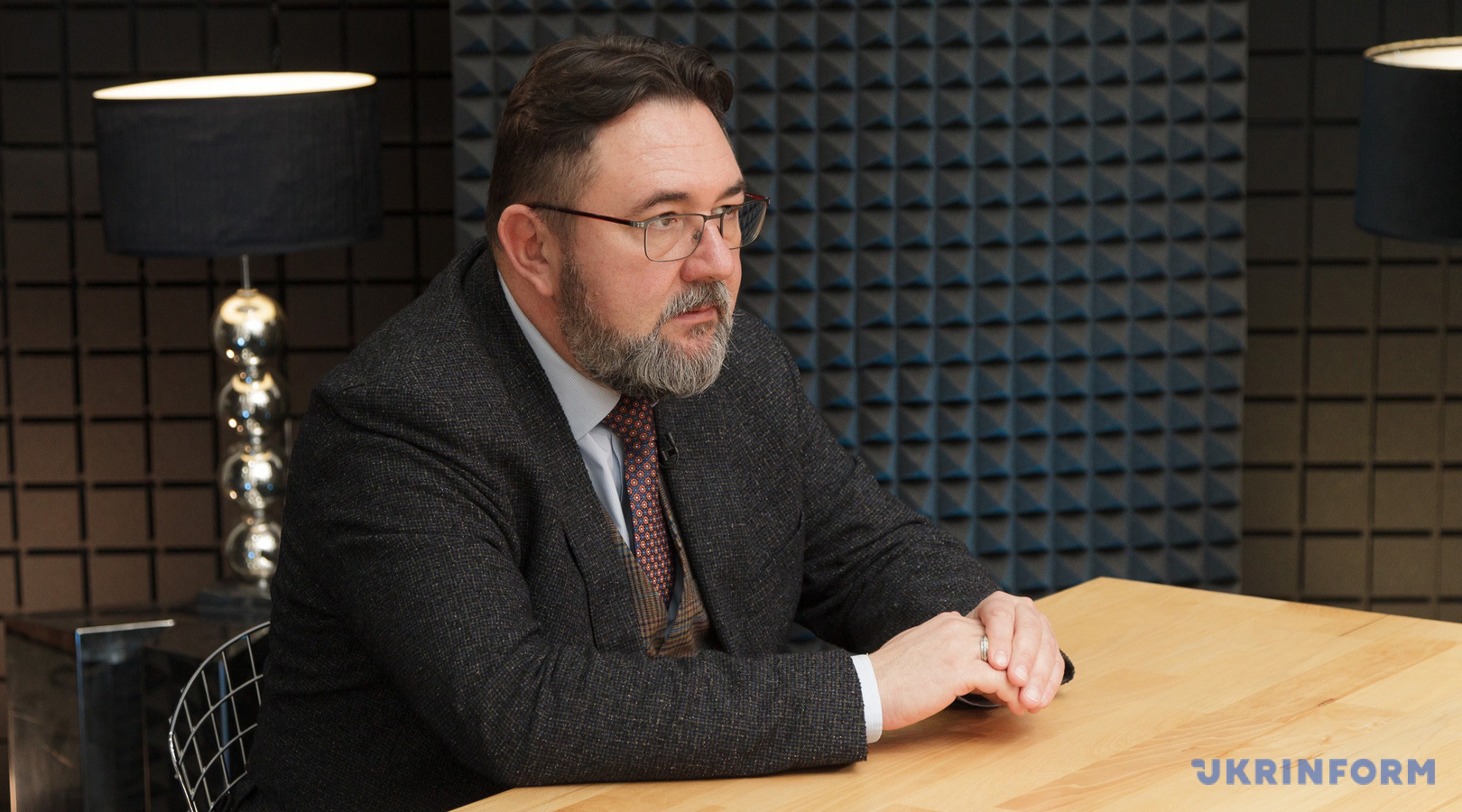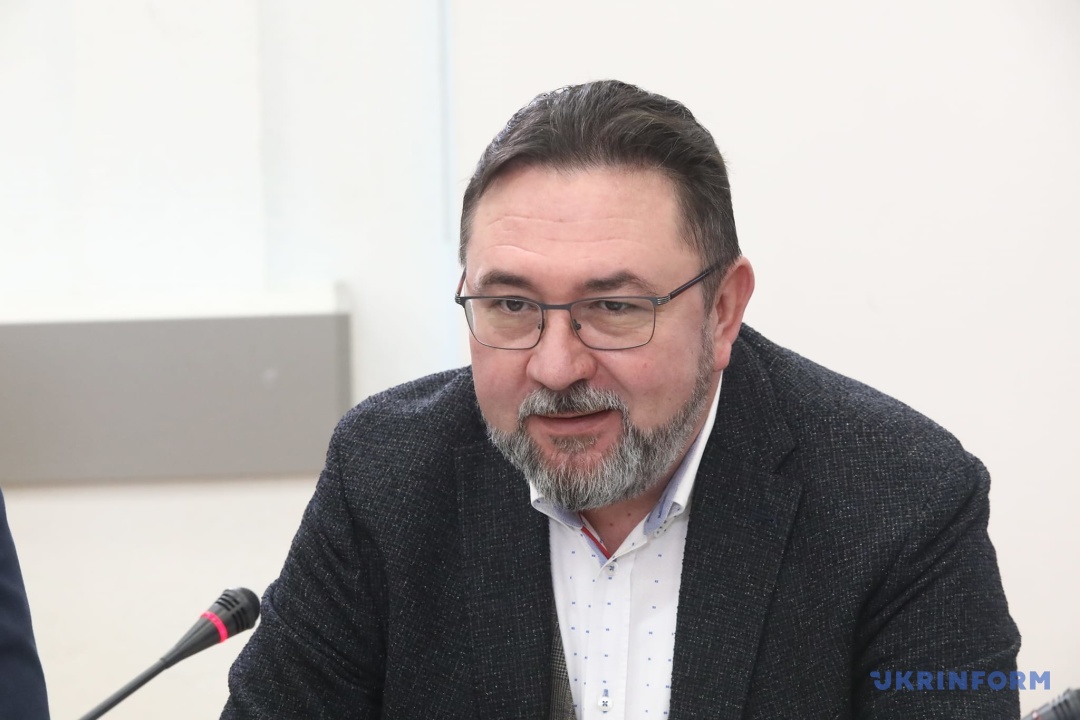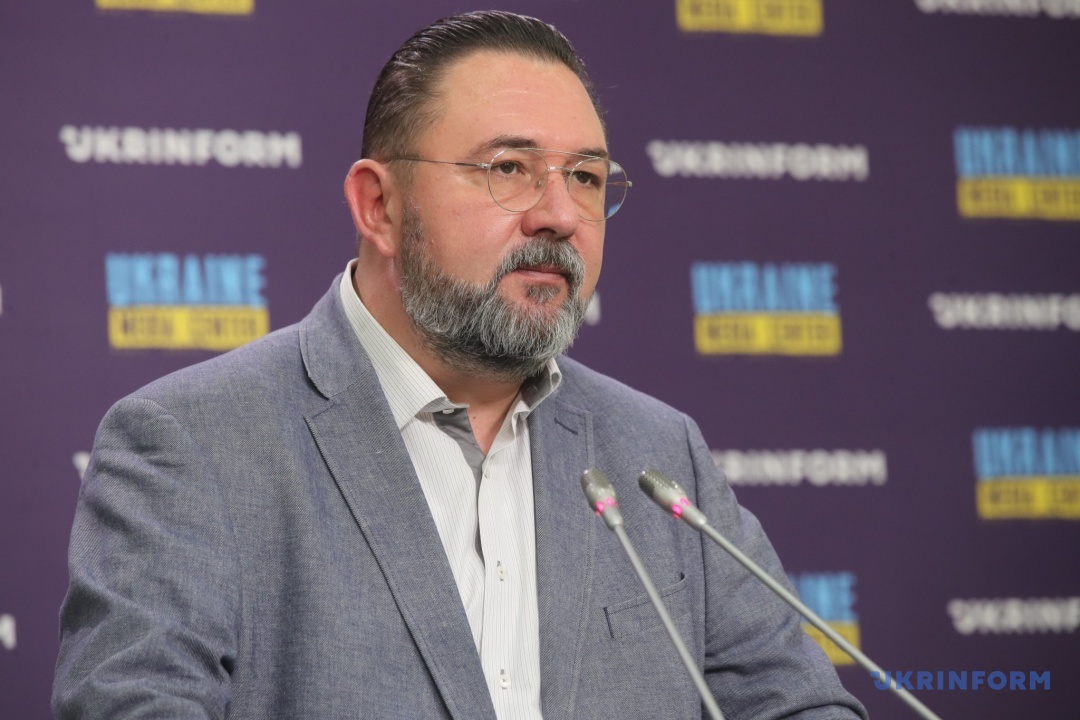The issue concerns one of the most high-profile bills expected by society. A bill that should have been adopted ten years ago.
A bill that is considered in the conditions that have never been seen before and that deals with things that happen every day.
Let's take a look at the historical and social background and Bill No. 8371 "On the protection of national and public security, human rights and freedoms in the area of activities of religious organizations" (in fact, the bill banning the Moscow Patriarchate in Ukraine), which was once again approved by the parliamentary committee.
It has recently emerged that among the experts of the Moscow Patriarchate's media group were the highest clergy of the Ukrainian Orthodox Church of the Moscow Patriarchate (UOC MP), vlogger Anatolii Sharii, and Vladimir Legoyda, an assistant to the Patriarch of the Russian Orthodox Church. That is, the resources that poisoned the information space every day had promoters among the persons accused of treason. (By the way, it will soon be exactly one year since Kirill Gundyaev - after Bucha and Irpin - blessed the head of the Russian National Guard with an icon for further killing of Ukrainians). The other day, the Russian Orthodox Church decided to simply "take" under its control the UOC MP's parishes in the occupied part of the Zaporizhzhia region. As a reminder, the Russian Orthodox Church has already created nine dioceses from the UOC MO's parishes in the occupied territories. It is interesting that the Russian Orthodox Church, which has always repeated that the church does not change borders even when the state changes borders, showed in this way that when it comes to Ukraine, it simply annexes parishes when its state brutally occupies lands.
A few days earlier, Bob Amsterdam, a U.S. lobbyist hired by business executive Vadym Novinsky, visited Ukraine (contracts, estimates, and official releases were published in the media). He tried to meet with Ukrainian parliamentarians. Thus, the Kremlin, having involved the U.S. lobbying business, is trying to secure Russian interests in the future law. Bob Amsterdam is not the only one running around the offices of the Capitol for Russian money, trying to convince Congress members that the rights of the Moscow Patriarchate are being violated in Ukraine.
However, according to our data, U.S. partners, having heard all the arguments from the Ukrainian side, do not object to the adoption of the law.
It is difficult to normalize the legal field when Ukrainian blood is being shed on the battlefields of a great war. Especially when that field concerns such a sensitive area as religion. And even when it is "mined" by the meanings of an enemy country, because it is bishops and priests from the UOC MP who become suspects in cases of treason. (Ukraine's SBU Security Service reported 70 criminal proceedings against the clergy of the Moscow Patriarchate).
We received a draft of the bill after it was approved by the committee. Its wording has not yet been published on the parliament's website. But we were not the only journalists who received this draft, and some have already begun to criticize it. This bill has been "pickling" in the bowels of the parliament for more than a year, and Ukrinform has already discussed it.
The draft of any law is almost always the object of criticism from different camps. Just like the current one, people with very different motivations and levels of awareness of the problem began to study it under a microscope and criticize it. In some ways, they are right. But the Ukrainian political experience shows that often seemingly "raw" laws were finally adopted when it was impossible to delay them. Take at least the Constitution with its "constitutional night," the law on book imports, or dubbing in Ukrainian.
It's because their time has come.
We are discussing the next version of the law with Mykola Poturaiev, head of the parliamentary committee on humanitarian and information policy.

- Mykyta Ruslanovych, let's try to answer the main questions about the future law. What do we ban or propose to ban?
- The Russian Orthodox Church is banned as an organization hostile to Ukraine. And today it is not a religious organization but one of the institutions promoting and popularizing the rashist regime. (The Ukrainian parliament last spring adopted a resolution recognizing Russia's political regime as rashist, totalitarian and misanthropic - ed.).
Yes, it does not officially exist in the register of the Ministry of Justice, but at certain historical moments, the legislator must say the words that should be heard by society, the faithful, local self-government bodies, and the Ukrainian clergy of all jurisdictions. So when they tell us that the rule banning the Russian Orthodox Church is declarative, I will answer that sometimes historical documents are called "declaration" and are declarative in nature. But this one is a strategically important declaration.
If we quote the proposed articles of the bill, then the Russian church "is prohibited, taking into account Russia's armed aggression against Ukraine, support for this aggression by the Russian Orthodox Church (ROC) and noting that the numerous illegal actions by the ROC and its subordinate religious organizations in Ukraine pose a threat to public and national security, rights and freedoms of Ukrainian citizens." Other religious organizations that have a religious center on the territory of the aggressor state are also prohibited.
- But the Moscow Patriarchate in Ukraine claims that it is not Muscovite. Some say that this is due to conservatism and reluctance to change something, and some say that they have the task of surviving difficult times in Ukraine and waiting for the "brotherly people" with Patriarch Kirill. So who should be banned and who should not?
- Let's provide some clarification. The activity of religious organizations (associations) affiliated in any way with a prohibited religious organization is prohibited. How can these religious organizations be determined? In practice, this would mean that the State Service for Ethnic Policy and Freedom of Conscience (SSEPFC) should conduct an investigation and determine whether this organization has ties to the Russian Orthodox Church.
The previous wording of the bill said that belonging to the Russian Orthodox Church is determined according to the criteria of a religious examination conducted by the SSEPFC.
As you know, more than a year ago, the SSEPFC issued a verdict that "the Ukrainian Orthodox Church, relative to the Russian Orthodox Church, has an ecclesiastical and canonical connection of a part with the whole. The relationship of the UOC with the ROC is not the relationship of one independent (autocephalous) church with another independent autocephalous church," and provided a number of indications as to why it is so.
- How is this question interpreted in the current wording of the bill? How to apply this examination in practice when it comes to thousands of communities, but each of them is a separate legal entity?
- We expanded the toolkit for such research. Now the SSEPFC can use both examinations and other materials: appeals from government agencies, local governments, media publications, SBU data, and appeals from public organizations regarding the activities of the Moscow Patriarchate's communities in Ukraine. In the previous wording of the bill, such appeals were not a reason for the SSEPFC to take any measures against an organization that positions itself as Ukrainian but instead acts against the interests of Ukraine. Now there is a whole list of organizations and institutions from the materials of which the SSEPFC can draw a conclusion about their subordination to the church whose management center is located in the aggressor state.
If the SSEPFC reaches such a conclusion, it must issue an order stating the reasons, and the community is given a period of 30 to 60 days to correct the situation. While this period lasts, a religious organization can enter into a dispute with the SSEPFC. The parties do not have to go to court right away, but can present counterarguments in dialogue with the SSEPFC. The SSEPFC, in principle, if the arguments are convincing, can agree and withdraw its order. If the order was not fulfilled within a legally defined term, then the SSEPFC is obliged to go to court with a motion to terminate the activity of such a religious organization. Then the court issues a ruling. If the arguments from the SSEPFC are convincing, then the organization's activities are terminated by the court - it cannot carry out transactions and conduct activities. I emphasize once again: everything will be decided through the court.

- There are several questions relating to security, morality, and jurisprudence. For example, the refusal in the temple to take notes for the peace of the souls of the fallen soldiers, because, they say, they are "fratricide" - is it a reason for the SSEPFC or not? A UOC MP church is not opened to bring in the coffin if the family in a village wants a Ukrainian priest to mourn the fallen soldier. There are also facts of contempt for the Ukrainian church, when Patriarch Kirill is commemorated at the altar, when, in order not to call the enemy an enemy, they constantly emphasize, as they say, that "they are not interested in politics."
- I would like to make a very important point. Banning organizations affiliated with the Russian Orthodox Church is a common cause for both legislators and citizens. The ability to jointly implement the law is a marker of maturity of both regional leaders at various levels and citizens themselves. Do you know how many factors affect the quality of implementation of any law?
- Of course, the implementation of a complex law is always like a complex musical notation...
- In territorial communities, churches or dioceses, everyone knows each other. If the believers are really worried out the subordination of their church to the Russian Orthodox Church, or you believe that the cleric who heads it is a bearer of the ideology of "Russian world," then ask the question of either transitioning to the Orthodox Church of Ukraine or register as an independent community. We give the tools, we provide the opportunity.
For example, we are introducing the concept of "the ideology of the Russian world as a Russian neo-colonial doctrine, which is based on chauvinist, Nazi, racist, xenophobic ideas and goals, the destruction of Ukraine, the genocide of the Ukrainian people, non-recognition of the sovereignty of Ukraine and other countries; which seeks the violent expansion of the Russian imperial space as a way of realizing the special civilizational right of Russians to mass murders, state terrorism, military invasion of other countries, occupation of territories, expansion of the canonical territory of the ROC beyond the territory of the Russian Federation."
We argued for a long time about how to word it. We stopped at the above definition. And the article of the bill states that the repeated spread of the ideology of the "Russian world" is a reason for applying to the SSEPFC. That is, when the priest of a community that says it is not part of the Moscow Patriarchate, but forgets that the sermon is a public speech, and it talks about the spread of neo-imperial ideology, then this is a reason for protest. Then we have an SSEPFC check, an order, and a court ruling...
There is also a proposal by the Security Service of Ukraine that the reason for terminating the activities of a religious organization is the fact that its leader has been convicted of treason or encroachment on territorial integrity. However, even in this case, the SSEPFC must go to court, because this is the only European way. That is, all issues that can be interpreted as restrictions on freedom of conscience must be resolved in court.
Again, the law is not about freedom of conscience, but about the ties of domestic organizations that may be part of the enemy's institutions.
We are not interested in anyone honoring John of Kronstadt, Xenia of St. Petersburg, and, even more so, Seraphim of Sarov. Honor them, pray to them, because these are your spiritual practices. However, the institution called the Russian Orthodox Church, which de facto is not a religious organization, is hostile, and it cannot maintain influence over religious organizations in Ukraine. And if you are not related to it, then show that you have left its governing bodies and have no connections with it.

- But there are several thousand of them - parishes of the UOC MP. Will there be enough resources to check all of them? And what about those who are already subordinate to the Russian Orthodox Church in the temporarily occupied territories?
- The draft law does not refer to communities in the occupied territories. But I have a question for those in the UOC MP who say that "we are separate and independent from Moscow." Why do signs change almost automatically when occupied by the enemy, and why do parishes become part of the Russian Orthodox Church? Regarding the resources for large-scale inspections, I said this above. Society also demands this law. We all do not want any Ukrainian religious organization to be managed from Moscow. And there is no need to blame us for allegedly "forcing them to become part of the Orthodox Church of Ukraine." This is not so. I saw: take your own step, re-register the charter. It is better to be independent than to maintain "canonicity" from a war criminal. If you do not want to join the Orthodox Church of Ukraine, then have the courage to remain temporarily unrecognized, but not tied to the Russian Orthodox Church. There is no mention of Tomos in the law, although there were proposals to include it.
- What about the situation with property?
- This bill bans any activity of legal entities whose owner, participant or shareholder is a prohibited foreign religious organization. If the organization ceases its activity after a court ruling, then, of course, it cannot conduct its activity, and the user disappears. If the property of a religious organization is municipal, then the local self-government bodies must know that this property will return to them after the order is issued. The SSEPFC should warn them about it.
- Why were the articles on the registration of communities included in the law? And what's new there?
- We have studied many cases, and we know the difficulties that arise when UOC MP communities decide to transfer to the OCU. We came to the conclusion that although the previous law provided the possibility of transition, the procedure was very complicated. It obliged the communities to have the originals of the old statutes. But the old statutes were very often lost, and given that control copies of old statutes must be kept in regional justice departments, this requirement seemed absolutely excessive and illegal. Well, look, for example, our great-grandfathers belonged to the Orthodox Church, they built this church, and today, when it ended up in the hands of the Russian Orthodox Church as a result of historical turns, they want to be part of the Ukrainian church. They got together, held a meeting, and they can't find the old charter, and they are not super-rich people to hire lawyers. Writing a new statute or restoring an old one is always expensive. And here is the usual situation, where four-fifths of the villagers want to switch to the OCU, but there are artificial restrictions. Now these restrictions have been removed.
By the way, we have raised the level of courts that will consider liquidation cases. The first is the Kyiv Administrative Court and the second is the Kyiv Court of Appeal. This is a safeguard so that decisions are not appealed against in courts in the regions that have nothing to do with the sanctioned organization.
- The bill contains a provision regarding "individual approval of clergy contacts with people living in the aggressor country." That is, people should warn the SSEPFC about contacts with someone from Russia. Is this if the heads of a UOC MP metropolis want to fly to Novinsky, as has already happened?
- No. We are talking about cases when the Ukrainian clergy needs, for example, to resolve property issues. This is a correct proposal as to how and in what format they should interact with the Russians if the need arises. Let them contact them, but they should notify the concerned central executive government agency.
- U.S. lobbyist Bob Amsterdam came to Kyiv not so long ago. Did he want to meet you? Novinsky's official lawyer said that Amsterdam had come to reconcile the UOC and the authorities.
- He is on the official list of U.S. lobbyists. He had the right to such a request. But I was going to Strasbourg, so objectively I didn't have the opportunity to meet him.
- What are the prospects for adopting the law?
- We are half a step away.
Lana Samokhvalova, Kyiv
